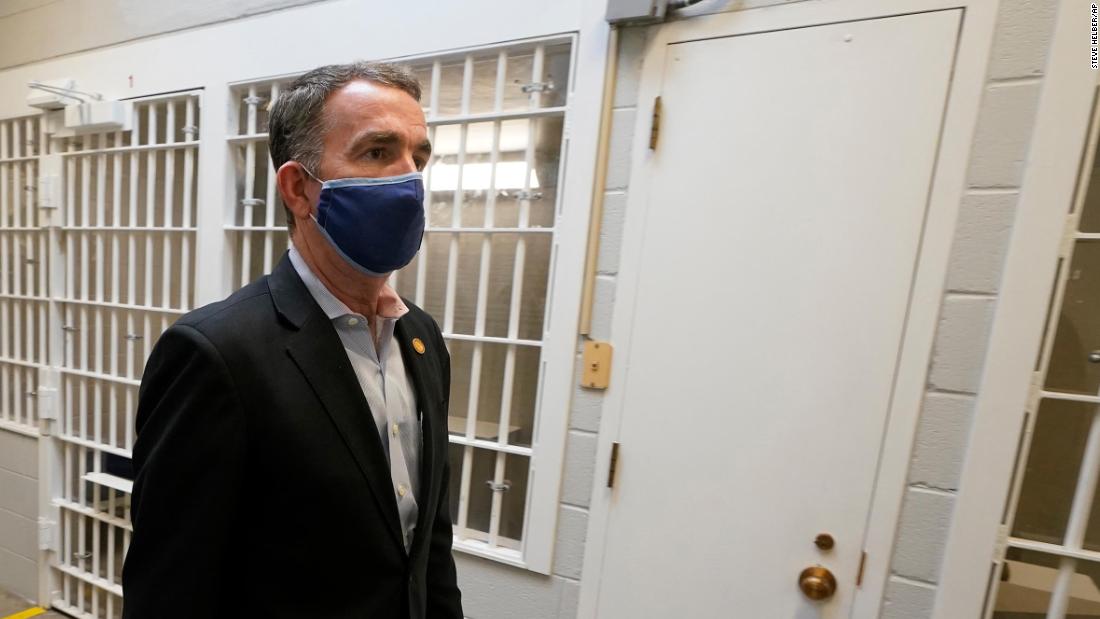“We cannot give the final punishment without being 100% certain that we are right. And we cannot condemn people to that final punishment knowing that the system does not work the same for everyone,” Northam, a Democrat, said before signing the legislation at the Greensville Correctional Center, which houses Virginia’s death chamber.
Two inmates currently on death row in Virginia will have their death sentences commuted to life imprisonment.
“Make no mistake, if you commit the most serious crimes, you will be punished. But Virginia can do that without continuing a system that has gone wrong at least once,” Northam said.
The governor cited the case of Earl Washington Jr., a black man who was sentenced to death in Virginia in 1984 and exonerated in 2000 for DNA evidence. “Although Mr. Washington is the only person we know rescued from Virginia’s death row, can we really be sure that there are no others?” Northam asked.
Before signing the legislation, the governor visited the correctional center and the execution chamber on Wednesday, which he described as a “powerful” experience that will stay with him and “reinforced for me that signing this new law is the right thing to do. to do”.
Debate charged
The debate in the Virginia legislature over the end of the death penalty has been emotionally charged, as Democrats have pointed to unfair convictions and racial disparities in the application of the death penalty. Meanwhile, some Republicans have argued that the death penalty provides justice for the victims of the most heinous crimes and their families.
During the debate, Democrat Del. Mike Mullin, the sponsor of the House bill, and other advocates of the measure argued that the death penalty should be abolished because “it is immoral, racially prejudiced, ineffective and expensive”.
“I agree, there are horrible people in the world, but what would you say to the last person who was executed unjustly? What would you say to the family of an innocent man we sentenced to death?” Mullin, who is also a criminal prosecutor in Virginia, told CNN in an interview on Tuesday.
Mullin told CNN that he would have loved to have seen more bipartisan support, but that he did not “envy the thoughts, emotions and wishes of a single person on this”.
“I don’t think anyone was being irreverent or anything less than very attentive in how they talked about it and how they voted,” he said, adding that the debate between lawmakers was “respectful”.
Republican Party state senator William Stanley, who initially signed on as the project’s original co-sponsor, ended up withdrawing his support along with other Republican lawmakers because the measure was not changed to include a mandatory minimum life sentence for qualified homicide without the possibility of parole.
Stanley, who abstained in the final vote on the legislation, told CNN last month that he wished there was more collaboration between the parties and that the legislature had taken soft steps toward the right outcome, rather than what he saw as a drastic shock. to the system.
The victims’ families remain divided
When Beaver was executed for the 1996 murder, Kyle said that “an incredible charge has exploded. My nightmares have stopped.”
“We talked about second chances. The second chance for some people is how they spend their last days on death row. (Beaver) had a chance to talk to his creator … and my dad didn’t have that chance. His life was interrupted. , “said Kyle, who defended the application of the death penalty in certain cases.
Kyle told lawmakers, “I can’t even begin to say what it was like, what it’s been like for 36 years not to have my father, and my family not to know my father, and the incredible gap that was left without him.”
But Rachel Sutphin, whose father, Cpl. Eric Sutphin, killed in 2006 by William Morva, the last man executed by Virginia in 2017, testified during the hearing that the death penalty is an “ineffective and outdated measure that brings no comfort to family members”.
“The state would better spend its time and money providing resources for my family than killing someone else,” she said.
